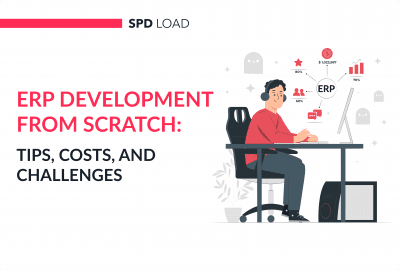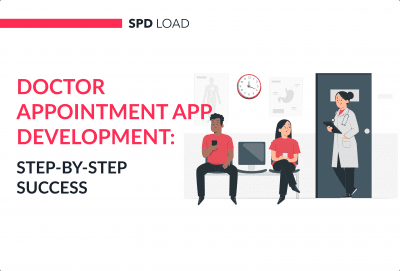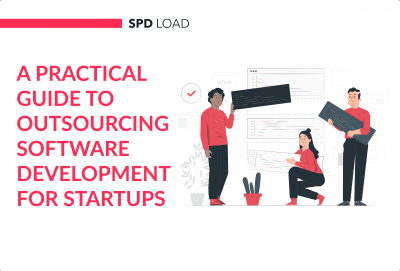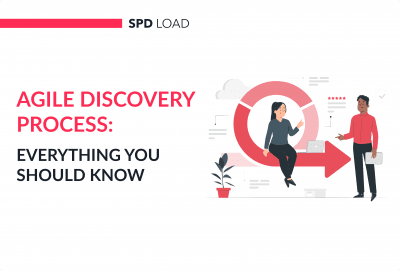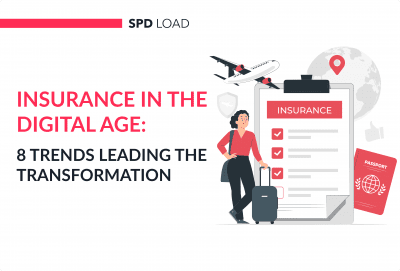HIPAA Compliant App Development: A Step-by-Step Guide
- Updated: Nov 11, 2024
- 15 min
The process for building HIPAA-compliant apps differs from conventional app development.
HIPAA compliance is crucial for healthcare app development to prevent fraud and theft.
Medical data is worth over 12 times more than credit card data on the black market.
HIPAA sets a high bar for privacy and security standards. However, with careful planning and execution, creating helpful, secure healthcare apps that patients and providers can trust is achievable.
Explore the potential of healthcare app ideas to make a meaningful impact in healthcare.
This guide will walk through the key steps of designing and building HIPAA-compliant apps.
We will cover features, technologies, costs, and certification options – everything healthcare organizations and developers need to understand.
With the right knowledge, your app can improve care delivery and outcomes without sacrificing patient confidentiality.
Discover the best HIPAA-compliant chat apps to ensure your conversations meet strict security standards.
Ensure your app meets healthcare privacy standards with our streamlined software development solutions — contact us today to get started!
What is HIPAA?
HIPAA ensures that there are no anomalies with the handling and storage of patient data. Further, it includes information sharing, billing, and health insurance coverage for the citizens.
The Health Insurance Portability and Accountability Act (HIPAA) was enacted in 1996. Hence, working on the app development, follow the HIPAA compliant rules and regulations.
One of the major purposes of HIPAA is to ensure coverage and maintenance of insurance. It also includes domains like simplification of the administrative tasks.
HIPAA also caters to taxation related provisions in medical expenses.
Thus, if you need to start mobile app development for Healthcare your product must be HIPAA compliant.
Understanding HIPAA Compliance
Online business and applications in the medical industry need to be HIPAA compliant. Compliance to HIPAA relies on two types of rules.
They are Privacy guidelines and Security rules. Under Privacy two things are important. One is that the information remains confidential. Added to this, its maintenance is also essential.
Hence, before starting researching how to make an app HIPAA compliant, let’s consider what it means for patients and hospitals.
PHI (Protected Health Information)
PHI or Protected Health Information comprises every aspect of patient information. This information is used, stored, maintained or shared by any entity that comes under this act.
Now, if you would build a HIPAA compliant app it should run and operate as per the PHI guidelines.
Developing an application under these conditions is a bit complex. This is because PHI does not only comprise the current and past data about the citizens. It also takes into account the future data collection from the patients.
Among the different classes of information under PHI, you must also account for all. This includes spoken information, physical and electronic records.
Not only sharing of documents is under scrutiny. In the process of HIPAA compliant app development, information transmission is also essential to create a valuable MVP. 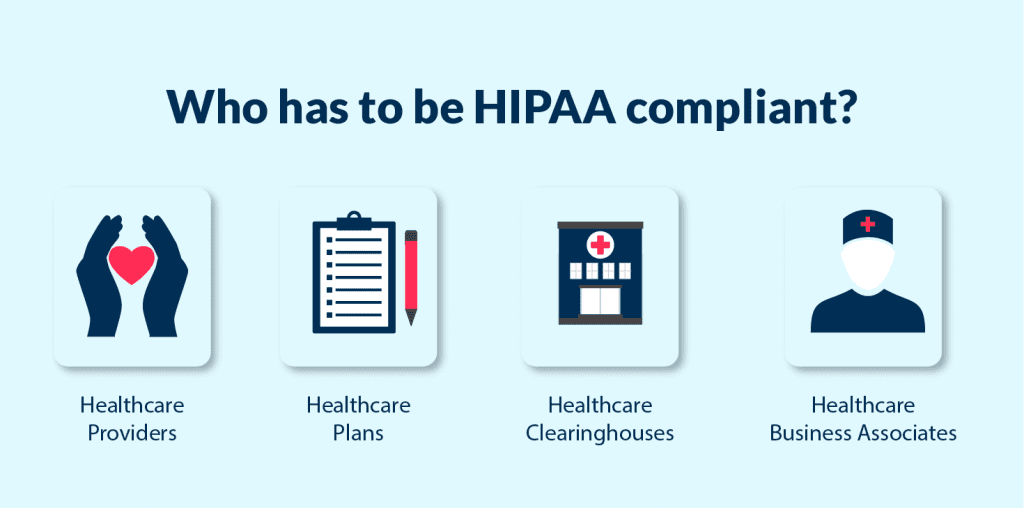
CHI (Consumer Health Information)
The major difference among PHI & CHI is that CHI data is not sent to the covered entities. For instance, the other health-based applications like FitBit, Google Health among others.
Since the covered entities under PHI have no use for this information. Such information does not come under the purview of HIPAA compliance while the process of app development and testing.
And before we answer on how to build a HIPAA compliant application let’s find out why this security standard is important to follow. 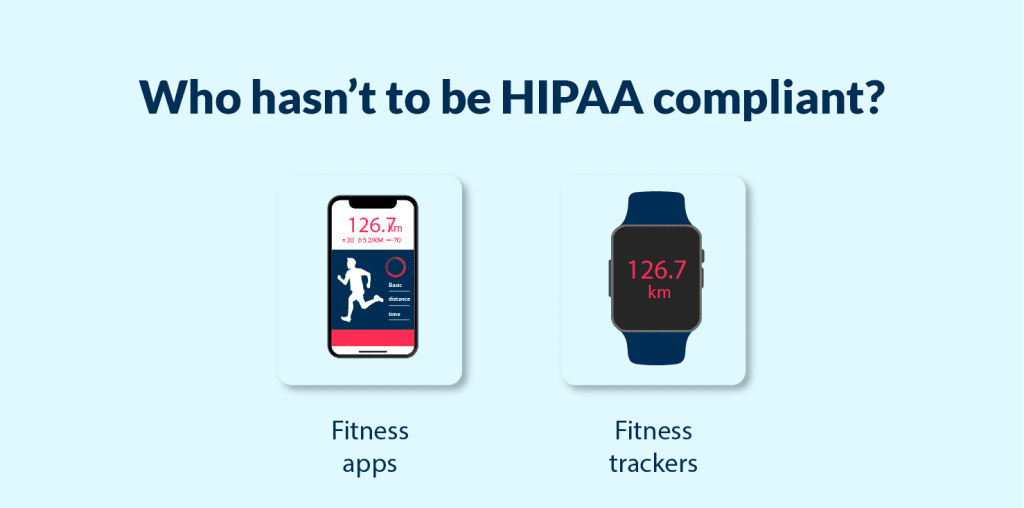
Why HIPAA Matters
HIPAA is a comprehensive legislation enacted to help patients and healthcare institutions. Let’s understand it from both the perspectives:
HIPAA Benefits Patients
| Type of action | Description |
| The entities cannot forward any information without the patient’s consent. | Under HIPAA compliance, only healthcare professionals must share such information with other stakeholders. Only those stakeholders that cater to healthcare operations are also covered under the PHI. This ensures the highest levels of privacy and confidentiality. Thus, build your app accordingly. |
| Prescription vendors and billing professionals cannot send patient’s data forward. | Other individuals and stakeholders who need such information cannot send it forward too. Further, the onus of safeguarding this information rests on the entities concerned. |
| The entities must notify the patients in case there is a breach. | As a developer, it is important to build a HIPAA compliant app that has the highest levels of security. Under the act, the patients have the right to get copies of their medical history. This permits a smooth flow of data sharing among different healthcare institutions. |
HIPAA Benefits Healthcare Organizations
Although HIPAA helps to take care of the patient’s needs, it also benefits the covered entities.
| Type of action | Description |
| HIPAA compliance makes it easier to store and maintain data from the hospitals. | It’s crucial for app development EHR or Hospital CRM software. Explore the benefits of electronic health records and why they’re essential for modern healthcare. Wondering how to build EHR/EMR software? Our expert guide walks you through the essential process of developing secure health tech solutions. |
| There is an improvisation in the standards for storing patient information. | All the healthcare entities follow a similar process of storing & recording the information. There is less scope of errors and misinformation. |
It helps to build a valuable platform for the Healthcare industry and make sure it’s compliant with all requirements. 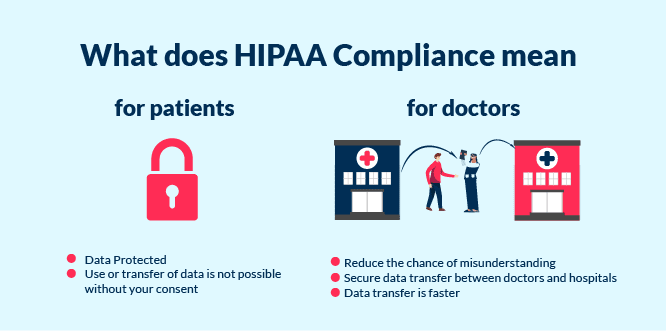
HIPAA Implications for App Developers
To check whether your mobile app needs to be HIPAA compliant, consider three things:
- Who is the app user (entity)
- What kind of information will be there on the application
- What is the type of software (encryption)
If the entity is one of the Covered Entity and the information comes under PHI, HIPAA applies. To build HIPAA compliant chat apps, you need to take care of the following requirements:
- Mobile app development as per the HIPAA compliance guidelines is an intricate process. Before starting such a project, the developers need to be sure about the whole process. This includes defining the scope of their application usage. This means that the developers need to know how to build an app for Healthcare and what information comes under the purview of PHI. It makes the product HIPAA compliant.Some of this information includes names, phone numbers, and email IDs. Other than this, SSN, Medical records also come under PHI. The US Department of Health and Human Services has named 18 types of information under PHI.
So if the application works with any such information, follow the HIPAA compliant app development processes. - Set up enough physical safeguards. To this end check the data transfer networks and backend support systems. Moreover, analyze the device integrations in this process. Since these applications have data transmission. An application must have all the safeguards for data protection. It’s a crucial point to consider before starting to build an app.HIPAA compliant mobile app development needs to look at the Administrative safeguards. These safeguards are primarily concentrated on the protection of ePHI.Share only the essential PHI across different platforms. Further, pay attention to the Information Access Management. With reference to information access, only the concerned person must have access to it. Take note of the clearance levels before starting to build a platform.Adopt measures like Fingerprint authentication. But, maintaining the user-friendliness of the HIPAA compliant app is also essential.
- Data encryption includes setting up unique user identification. Also, take note of the emergency application access procedures, and log out sequences. Plus, ensure that there are no PHI data notifications on mobile devices.
- Limit the accrual of data due to the least. Do not allow users to store or receive more data than what is needed. It is also essential for data security.
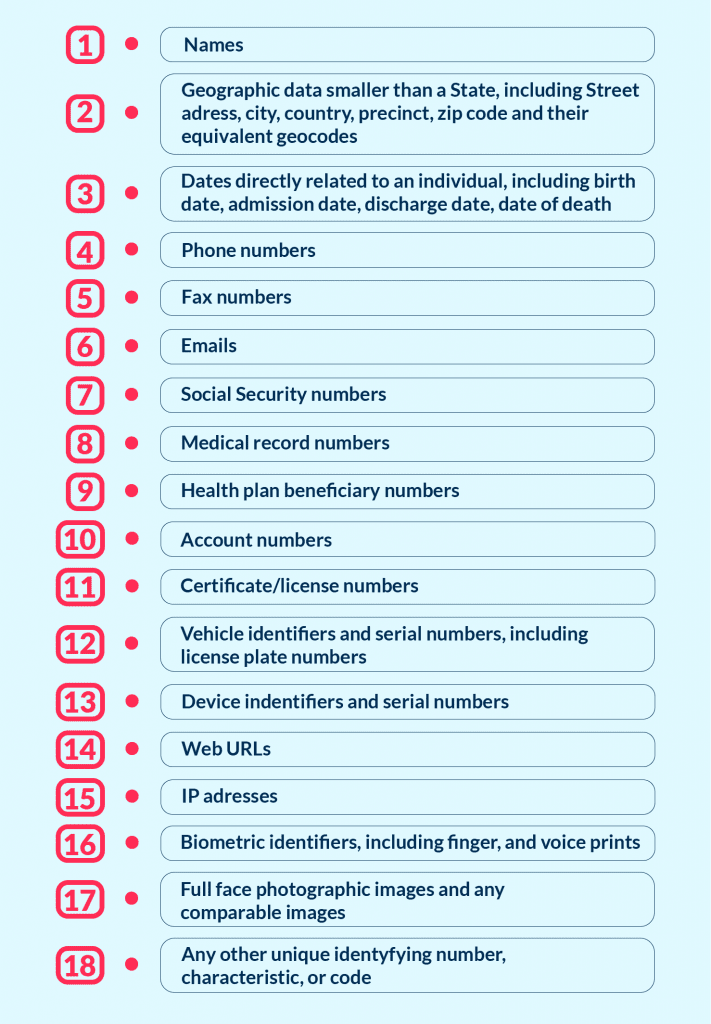
Evaluating if Your App Needs HIPAA Compliance
When You Need to Build a HIPAA Compliant Application
Suppose a healthcare provider has contacted you for a mobile app development. With this, they aim to keep track of the patients. This application allows the healthcare provider to store personal information about the patient. Should it be HIPAA compliant?
Besides this, it helps to track the food and exercise habits of the patients. The parent organization and the patient can exchange information with each other. This can be via messages or auto-generated notifications.
If this applies to your application, then you should look for how to make an app, that definitely must be HIPAA Compliant.
We are empowering healthcare innovation through custom apps
When You Don’t Need to Build a HIPAA Compliant Application
Consider another case. Suppose an organization approaches you to develop a health-based fitness app.
This application would help the user enter data like height, weight, age, and name, and so on. Plus, these readings are from a home based medical device.
If you want to build an app with such a set of data, you don’t need to be compliant with HIPAA. This is because there is no covered entity that is getting access to such information. These readings are only for the reference of the user.
How to Build a HIPAA-Compliant Mobile App?
HIPAA Compliant app development is not like the everyday application development process. You must develop it with precision and by following the rules and guidelines.
Features of a HIPAA-Compliant App
| Feature | Description |
| User Identification | Allowing the users to log in to the application with email is not the safest way for HIPAA compliance. For User authentication needs you can use a password or PIN. Plus, it can be a Smart key or card, or Biometric identification. Consider this aspect, when you’ll start to build your own app. |
| Access during Emergencies | During the times of emergency, essential services and utilities can see a disruption. Further, access to the data must continue under all circumstances. So, ensure that there is a way around it. When there is no electricity or some other natural disaster has occurred. It isn’t a direct requirement of HIPAA compliance, however it’s a necessary feature for a Healthcare app development. |
| Encryption | Data Encryption is essential in applications for healthcare at all times. Sharing of information via emails is not allowed as they are not encrypted. Whether the data is at-rest (meaning that it is not shared with anyone). Or whether it is stored with a SaaS or Cloud Server, it needs encryption. |
| Data Transit Encryption | Use services like AWS or Google Cloud which run Transport Layer Security 1.2. These services encrypt data during transmission. The Department of Health and Human Services has set these technical safeguards. These safeguards address all the encryption, authentication, and identification specifications. They are important to install while HIPAA Compliant mobile app development. It is important to put in place end to end encryption with TLS. TLS is essential for inbound or outbound packets. This has to be further fortified with AES encryption. |
Achieving HIPAA Compliance
Get Expert Help
The whole process of mobile application development is intricate and complex. Add to it, the restrictions put forth by HIPAA compliance, you will need the help of an expert.
Always get help from experienced healthcare application developers, who are sure on how to make an app in the healthcare domain. Such an expert will be able to audit and analyze your current HIPAA compliant preparedness.
Either you can hire an in-house expert to complete the task. Or outsource the whole process to a third-party expert.
Get familiar with the Patient Data
Any healthcare institution will have access to confidential patient data. This data can be stored, shared, transmitted, or maintained via a mobile application.
You need to analyze and identify what comes under the purview of PHI. Of course, an experienced team will help you to understand what kinds of data are HIPAA compliant. It’s a first step in app development to properly design the database.
Once you have done this, try to figure out what kind of data can be avoided by sharing hands from the mobile application.
Building the Application
On the basis of the physical and technical safeguards, we can move from planning how to make an app to creating one. The whole process needs to follow the HIPAA Compliant application development guidelines.
The tech stack depends on requirements and complexity of an application. Yet, usually we use the following stack for MVP development:
- Backend – Laravel. If you’re working with Laravel, these best Laravel tools and resources will streamline your workflow.
- Frontend – Vue.js, React (Discover the cost to hire a React.js developer and learn what you can expect for your investment.)
- Mobile development – React Native, Flutter
- Database – AWS
Healthcare applications are polylithic. Thus, when you look for how to make an app in a scalable way, you definitely find the usage of reactive technologies. And such kind of technologies make a perfect fit for HIPAA compliance:
- The initial process is usual. There is information gathering about the application along with understanding the client’s requirements. In the next step, we have application prototype development and design. Post the development, test the application with fake users. This step is crucial because a HIPAA-compliant mobile application needs to be secure.
- Developers must pay attention to the app architecture during the development process. Along with this, they must also ensure the fulfillment of government requirements for Healthcare software.
- Testing is also a vital aspect of HIPAA app development. There are various reasons to do that. For one, it will help us test the strength of encryption in the application. The user’s data stored at the testing stage is fake. The developers check the gateways and authorization processes. While developing the security measures and authorization aspects, follow IAM practices. Identity and Access Management guidelines provide a detailed perspective on app security. These security checkpoints are in sync with the access controls to build HIPAA-compliant apps.
Further, in HIPAA Compliant app development, you may need to adopt some less-used technologies. This includes SOAP, RPC Calls, and REST. These technologies are common for the Healthcare industry.
Tech Stack for HIPAA-Compliant Apps
While developing a HIPAA compliant mobile application the technology stack varies. Starting with the information-sharing aspect the developers need to embed VPN for data transfers. This is because files sent without a VPN can be hacked.
Another level of certification is HL7 or Health Level 7. This provides data transfer guidelines among healthcare providers.
| Type of feature | Description | Technical solution |
| Logging Controls and Checks | Any app architecture for a HIPAA app development needs to have robust logging controls and checks. It is essential to include systems that allow the security guys to have access to detailed logging information. It’s crucial for HIPAA compliance. When you look for the developers, they should know how to make an app in a secure way. Also, they need to know who has logged in, their IP Address, point of entry and which data was accessed. All the activity needs to be tracked, logged, and stored. | Coming down to the AWS levels of access, use AWSCloudTrail. This will help you record the data (AWS API Calls). So, using AWS Config will let the handle AWS Resource inventory. Also, it will help you handle configuration history, and configuration change notifications. Compare Digital Ocean, AWS, and Google Cloud for insights into which platform fits your business best. |
| Monitoring and Log Maintenance | Such a system lets you set up emergency alarms in the instance of a system anomaly. It can also notify you in case of abnormal system behavior. With this, you will be able to run constant analytics and ensure stringent HIPAA security risk profiling. CloudWatch also allows you to view the access data in the form of graphs. | AWS CloudWatch is one of the best tools to keep a record of access to PHI. |
| Storage & Backup Technology | PHI is sensitive content and it needs to be protected and safeguarded. AWS has several mechanisms to help you ensure robust backup. Some features include EC2 AMI Creation or Snapshotting. | Further, to ensure both client side and server side encryptions, you can use Amazon S3. For data in transmission using Secure Sockets Layer (SSL) enabled endpoints with Amazon S3 is the best option. |
HIPAA Certification Options
You won’t get a HIPAA Certificate as nobody provides such a certificate. You need to take it into account when you look for how to make an app HIPAA compliant.
Being HIPAA Compliant means that you are only adhering to all sets and subsets of guidelines. The guidelines that are set by the concerned authorities.
These guidelines pertain to the proper administration and technical safeguards. Further, they instruct to install robust physical infrastructure and security.
Follow these requirements and guidelines while building a HIPAA compliant app.
How Much Does it Cost to Build a HIPAA-Compliant Application?
The question of how to make an app for hospitals is about the costs as well. The cost of HIPAA compliant mobile app development depends on a few key factors:
- Type and size of an organization
- The complexity of the application
- The number of user’s roles. For example, hospital role, administrator role, doctor role, and patient role.
Thus, to create an MVP and build a HIPAA compliance application, you need to understand the main values you’ll provide clearly. It helps to focus on core features and make a budget-wise project plan.
The cost of mobile app development depends on many factors. However, the common development team knows how to make an app. Yet, the challenge is to find a team with an expertise in HIPAA compliance app development.
There are a few options you could try. Each of them has own benefits and drawbacks:
- Local agency. The cost may vary from $100 to $250 per hour. So let’s say an average price per month is up to $64,000. It’s a good option, if you have an unlimited budget for testing business hypotheses.
- In-house team. It’s the most reliable for startup founders. The monthly cost is up to $25,000. However, there are many risks to building a team from scratch including the lack of business analysis, project management and development expertise. Choosing the best project management software is crucial for keeping projects on track and organized.
- Freelancers. It’s the cheapest way. An average monthly cost will be up to $13,000. However, there are plenty of risks: spending of own resources, the lack of expertise, unreliable cooperation.
- Outsourcing development. It’s both reliable and quality cooperation. It will cost up to $19,000 per month. Yet, you need to choose among different countries. Yet there are many expertised and experienced teams to start to build HIPAA compliance apps.
Outsourcing software? Check out the best countries to outsource software development for top choices.
SpdLoad team has deep expertise in building HIPAA compliant apps. Let’s take a look at a typical MVP for Healthcare.
Usually it includes a few kinds of features:
- Electronic Patient Records
- Risk management & Risks Analysis system
- Analytical Dashboard
- Medical Staff Management
Partner with SPDLoad to improve how you deliver patient care
Of course, the set of features depends on the in-depth analysis of the market, customers, and competitors’ landscape. The research aspect is crucial when you start to look for how to make an app for patients.
And usually, the business costs are not in prior. In case of HIPAA compliance, an app without validated market demand may become a costly adventure.
The research helps to find the relevant pain points and suggests an improved way on how to solve these pains.
| Type of application | Description |
| CRM for hospitals | It is a complex system with many roles and entities. It required a very sophisticated database design, many analytical dashboards, a few layers of users with different access, and a complex subscription system. If you’re interested in how to build CRM from scratch, our guide will give you all the tools and insights you need. |
| Patient Case Management application | It also requires a robust and secure database, tracking system, an emergency support system, advanced billing, and scheduling systems. |
| Telemedicine applications | They are based on secure video streaming. Usually, these are high-load platforms. Thus, besides being HIPAA compliant, such kinds of platforms need additional technical solutions to expand the capacity and scalability according to the number of users. |
Let’s take a look at our latest case of HIPAA app development. We created an application to track the mental health of patients. As an MVP, this app includes patient data, scheduling, and billing systems.
Our team developed this app from scratch. The customer provides us with the results of unique research as a part of a Harvard scientific work. It was a starting point to build a HIPAA compliant application.
The project key factors:
- The customer’s pain: current workflow in the mental health niche is built on the usage of paper tests.
- The solution: the founder conducts own customer development and decides to create a system for automated testing patients. The app includes patient data and scheduling systems.
- The main technical solutions:
- We created a complex algorithm to evaluate tests. They all have a different structure, number, and types of questions.
- We implemented advanced graphics. There are 30 graphs at the same time. They present all the necessary information in a user-friendly way.
- We make the whole app HIPAA compliant.
| Project Task | Hours Taken |
| Business Analysis | 60 |
| Design | 45 |
| Backend Development | 142 |
| Frontend Development | 155 |
| Implementation of roles | 33 |
| Database design | 30 |
| HIPAA Compliance | 100 |
| Quality Assurance | 140 |
| Project Management | 95 |
| Total Hours | 800 |
Ready to Develop Your Medical App?
Achieving full HIPAA compliance is no simple feat. The penalties for non-compliance can reach up to $1.5 million per violation.
From crafting comprehensive BAAs to enabling ongoing auditing, developers must consider many intricate factors.
Contact our development team if your healthcare organization needs an experienced partner to consult or collaborate on a HIPAA-compliant app.
We’ll work together to craft life-changing, secure solutions that earn patient trust and facilitate excellent care.
Picking the right partner is crucial — here’s how to choose an app development company that fits your needs.





